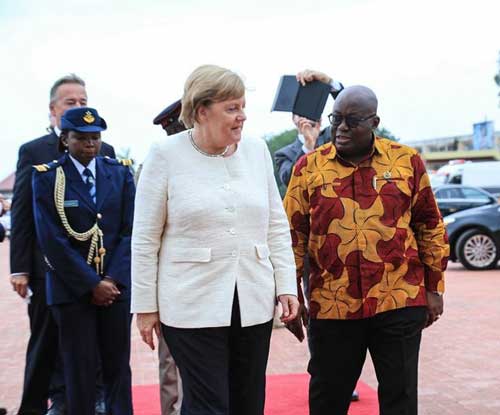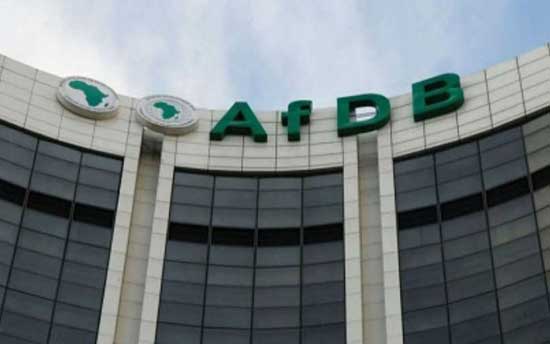- We must rather be asking where the chunk of the profits from the auto business of these two companies will end up?

Often, I have heard people question the business model, especially the marketing strategy, of the local auto maker Kantanka. This arguments have grown louder in the wake of the announcement that the German car maker, VW seeks to establish an assembly plant in the country.
While some claim the Kantanka vehicles are too expensive, others seek to exhort the manufacturer to focus on the smaller utility vehicle market, such as can be used for the cab business. While these suggestions appear to many as an obvious path that the local car maker should take, it's my opinion that some of these views are borne out of our failure to pay a closer attention to the circumstances surrounding Kantanka's position as car maker in a market inundated with several import varieties, as well as a lack of fundamental appreciation of the auto market, and for that matter any other competitive market.
It goes without saying that Kantanka hasn’t got the capacity to produce, such that their unit cost will be as competitive as compared to the KIAs and Hyundais that dominate our cab market. A buyer for the cab business will always go for a cheaper version which has an established reputation any day; over a new, far less tested and more expensive brand. As such, the ability of Kantanka to break into the market will come from a conscious industrial affirmative action from government. If the government decides that all of its sedans and small vehicles, as well as pickup truck purchases must be from Kantanka; automatically, they have provided a guaranteed market. With such a contract in hand, the local automaker can raise financing from any local or international banking institution and import the relevant technologies and infrastructure setup to deliver. Once their cash flow improves from this guaranteed market from government, they can then begin a race of price competitiveness with the other imported brands. Because it is assumed that they will be given tax holidays and incentives that will put them at an advantage. So that a brand new Katakana in the mode of a Kia Piccanto will be priced just about the same as an imported fairly used version of the Kia. That way, the local consumer is incentivized to go for the local brand.
Our continued calls for the entrepreneur to mass produce with no recourse to considerations of the capital outlay required and the market dynamics is to exhibit a lack of appreciation of how these things actually work. We must begin backing our calls for industrialization with commensurate strategies and support mechanisms that all nations that have succeeded in building local industrial capital afforded their entrepreneurs.
Some make the argument that Kantanka only imports parts from China for assembly, hence is doing nothing original. But such arguments are neither here nor there. Current production businesses are no longer monolithic in operation; such that in the case of the car making business, it must be noted that no auto maker manufacturers every part from scratch by itself anymore. As such, the only important consideration that must greet the Kananka business is the economic value added on, as it extends the value chain it imports from China. If with time Kantanka’s market grows, it will make business sense for manufacturers of these auto part inputs to setup shop in Ghana. Thus creating a backward industrial linkage.
On the matter of Volkswagens entry into the market, some argue that it makes no difference if they assembly vehicles or whether it’s done by Kantanka; since one party imports parts from Germany to assemble, while the other does same from China, hence it serves essentially the same end. I believe that's the wrong way of looking at the situation. We must rather be asking where the chunk of the profits from the auto business of these two companies will end up? I don’t mind Kantanka and VW coexisting, because they will both create more opportunities locally than if only one operates. Plus VW brings years of auto experience to bear on the market, and if we conduct our negotiations well, there should necessarily be a sort of skill and technology transfer required of them; which could go to build local capacity, in this case that of Kantanka, and others who may subsequently be encouraged to venture into this area.
Also, though both entities should be given some concessions to operate, it is expedient that government gives more incentives to the local brand, for any such incentive extended to the foreign ones. Because, with our policy of 100% repatriation of profits, the gains made by VW will most likely go back to building the German economy. That of Kantanka will stay and be used to expand industrial activities in Ghana.
It is my view that indigenization of Capital is the only way for third world countries to break out into the industrial stage of development. Hence government must pay critical attention to, and must be discriminate in how it grants such incentives and concessions to foreign and domestic companies respectively; otherwise, the attempt to attract foreign manufacturing giants may necessarily mean a decimation of local initiatives and enterprises. The result here being the inability to build local capital, hence continuously tethering our economy to the apron strings of others.
On Thursday, 30th August, 2018, the German Chancellor, Angela Merkel, paid a day's working visit to Ghana. The purpose of the visit is to deepen further the already strong relations that exist between the two countries, as well as explore other areas of co-operation.

















